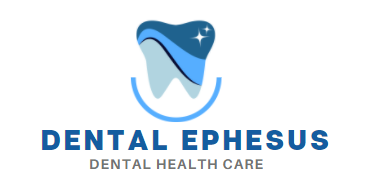Addiction recovery can be a challenging and often isolating journey. However, finding support during this time can make a significant difference in your recovery. Support can come from various sources, including family, friends, support groups, therapists, and addiction treatment programs. In this article, we will explore the importance of finding support during addiction recovery and ways to access it.
Why Is Support Important During Addiction Recovery?
Addiction recovery is a long and challenging process that can take a toll on an individual’s mental and emotional well-being. The journey can be lonely and isolating, and it is essential to have a support system in place to provide encouragement, motivation, and accountability.
Furthermore, the support system can help individuals stay on track with their recovery goals and provide a sense of belonging and acceptance. When individuals feel understood and supported, they are more likely to stay committed to their recovery and avoid relapse.
Ways To Find Support During Addiction Recovery
Reach Out To Family And Friends
Family and friends can be a gat source of support during addiction recovery. It can be challenging to admit to loved ones that you are struggling with addiction, but it is essential to communicate openly and honestly with them.
Having supportive family and friends can provide individuals with a sense of belonging and understanding. They can offer encouragement, motivation, and accountability throughout the recovery journey. It is crucial to surround yourself with people who are positive, non-judgmental, and supportive of your recovery goals.
Join A Support Group
Support groups are a great way to connect with individuals who are going through similar experiences. They offer a safe and non-judgmental space to share experiences, challenges, and victories. In addition, support groups can provide valuable information and resources on addiction and recovery.
There are various support groups available, including 12-step programs like Alcoholics Anonymous (AA) and Narcotics Anonymous (NA), SMART Recovery, and Celebrate Recovery. Each support group has its unique approach to recovery, and individuals should explore different options to find the right fit.
Consider Therapy
Therapy can provide individuals with a safe and confidential space to discuss their addiction and recovery journey. Therapists can offer guidance, support, and strategies for coping with triggers and stressors. They can also address underlying mental health issues that may contribute to addiction.
There are various types of therapy available, including cognitive-behavioral therapy (CBT), dialectical behavior therapy (DBT), and family therapy. It is essential to find a therapist who specializes in addiction and recovery and who makes you feel comfortable and supported.
Seek Professional Addiction Treatment
Professional addiction treatment programs can provide individuals with a comprehensive and structured approach to recovery. Treatment programs offer various therapies, including individual and group therapy, family therapy, and holistic approaches such as yoga and meditation.
They can also provide medication-assisted treatment to manage withdrawal symptoms and cravings.
Utilize Online Resources
There are various online resources available that can support individuals during addiction recovery. Online resources include forums, chat rooms, and recovery apps. These resources offer a safe and confidential space to connect with others who are going through similar experiences.
In addition, online resources provide individuals with access to valuable information and resources on addiction and recovery.
East Coast Rehab Center Rockland Recovery, provides evidence-based addiction treatment programs to help individuals achieve lasting recovery and improved overall wellness.
Conclusion
Finding support during addiction recovery is essential for maintaining long-term sobriety and achieving a fulfilling life in recovery. Support can come from various sources, including family, friends, support groups, therapists, and addiction treatment programs. It is essential to find a support system that meets your individual needs and provides encouragement, motivation, and accountability.
























